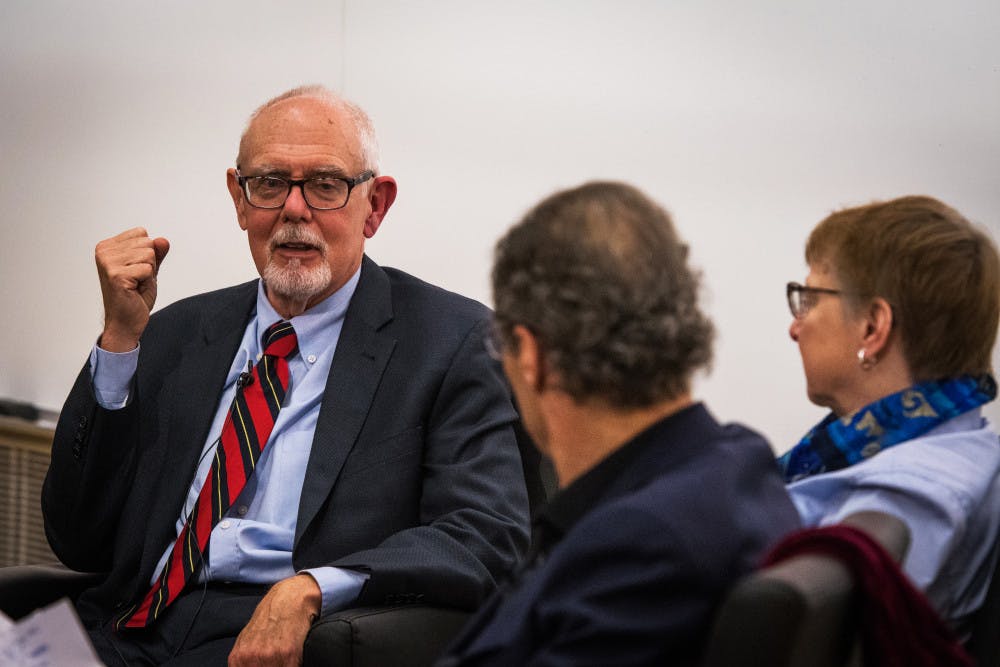On Thursday night, National Public Radio’s former bureau chief in Moscow, Corey Flintoff, discussed ongoing and future tense relations between the United States and Russia during President Trump’s administration. Flintoff joined Senior Lecturer of English Jonathan Readey, Professor of Political Science and Slavic Studies Linda Cook and Professor of Public Policy, Political Science and Urban Studies James Morone to voice concern over the seemingly close-knit relationship between Russian President Vladimir Putin and Trump, conflicts in Syria and the ongoing threats against news media in both countries.
“Americans are not aware of how intensely anti-American the Russian government and the Russian media are,” Flintoff said. “If you follow Russian media, you would believe Russia was almost on the brink of war with NATO, which they always identify with the United States.”
Flintoff voiced the many controversies concerning Trump’s administration in connection with Russian officials, which began with the U.S. presidential primary elections. Russian government and Russian media favored Trump over Hillary Clinton, Flintoff added, stating that the media heavily covered Trump in a positive light. Such coverage contributed to the anti-American hysteria, Flintoff said, as news corporations published headlines such as: “If Hillary wins, she will surround Russia with nuclear weapons.”
Russian analysts originally hoped that Trump’s instability would distract Americans from foreign affairs, Flintoff said. However, that same instability is now a possible threat to Russia, he added.
Less than 100 days into Trump’s presidency, Russian media have shifted their portrayal of Trump. “They are covering him in a lot more critical ways, just as American media,” Flintoff said, adding that Russian news outlets are “mocking” Trump, particularly for the American Health Care Reform Act, which failed to pass in the United States House of Representatives March 24.
Flintoff also stated that the differences between Trump and Putin will make future U.S. and Russian relations unpredictable. An evolved leader with over 17 years in power, Putin has the charisma and poise to dominate foreign affairs, Flintoff said. Trump, meanwhile, lacks the “policy experience — or policy interest — to elevate (himself) to Putin’s power,” he added.
In light of the chemical attack that killed over 70 people in Syria, questions concerning the future relations of the United States and Russia continue to emerge. White House Press Secretary Sean Spicer reportedly placed blame on Syrian President Bashar al-Assad, while Putin contested the stance, standing behind Assad despite evidence pointing to the Syrian government’s involvement, according to CNN and The Guardian.
Though Flintoff said Russia has enough military force to take land in Syria, he speculates that it does not have the military force to maintain hold of such land, just as the U.S. did in Iraq. CNN reported that US Ambassador to the United Nations Nikki Haley stated that the administration’s priority is shifting away from Syria.
“Russia is not a normal state. Russia is a mafia state — it’s run almost like a criminal enterprise,” Flintoff said. “You can’t expect to be able to conduct the normal diplomacy we conduct with Germany, for instance, because you’re dealing with a state whose aims and interests are altogether different.”





